- Home
- Alice Hoffman
Property Of, the Drowning Season, Fortune's Daughter, and At Risk Page 12
Property Of, the Drowning Season, Fortune's Daughter, and At Risk Read online
Page 12
The corner kid who had salvaged the side-view mirror was chased by a slightly taller dark-haired boy who grabbed the mirror for himself. It was Tony. For a moment I smiled, thinking that perhaps since that day McKay had taken him for a ride Tony had waited outside the auto repair shop, outside the apartment, waiting for a word, for a nod, for anything from McKay.
Tony held the broken metal-and-glass souvenir in his hands and walked to the corner of the Avenue where I stood. I held the raincoat tight around me. In the hot morning wind the coat moved and soft fabric touched my legs. We did not look at each other, Tony and I, we only stood on the same corner. He held the mirror in his hands and we only stood together on a corner of the Avenue, and watched McKay go.
2
For several days McKay did not return to the apartment, I remained clothed only in a bathrobe, and I consumed enough Seconals and gin so that I no longer remembered that the season was summer. After the third day I was no longer waiting for McKay. I was only waiting.
I did not even leave the apartment to buy food. I ordered a pizza delivered one night, but one bite made me ill, and so the pizza, still encased in its cardboard box, found its way into the pail of overflowing garbage. I stared at hours of television, and I kept the venetian blinds closed tight against the sun. On one six-o’clock news report I heard words about a death on the Avenue: a young man with a smile on his face and a bullet hole in his neck found in the back seat of a ’57 Pontiac. The Pontiac was red and white, the mag wheels were silver-spoked. I closed my eyes.
I confess: I always thought Danny the Sweet was a fool, but I never thought he would die. He was much too young for anything like death. Even the one that might have claimed him in some delta in Indochina was avoided with a smile and a low score on every test the Army placed before him. Even the war did not want him. He was much too young even for that. He was no more than a sigh and a bullet hole and a way to trap McKay.
I had not gone to the funeral. McKay went, but I sat home alone and drank iced tea and fell asleep before the TV set. I did not cry. There seemed nothing to cry for; the death he died was not his own.
Am I heartless to speak this way about the death of an old, a sweet friend? Do you think it is cancer or the heat that caused me to think only of McKay? Still only of McKay. Is it cruelty to forget the color of the Sweet’s eyes so very easily? I wanted what was living, I needed what was living, do you blame me for that?
To get that I was not above reaching for straws, or for spells. And so I had sat in the front seat of the Chevy, and as I had laid my head upon the steering wheel, I had reached for the charm of the tooth encased in silver as it rested between my breasts. My fingers had stroked the silver as the wheels of the Chevy climbed over the curb; I murmured a chant against the power of the mood, though I knew I had no magic big enough, no herb strong enough to stop the direction we moved in.
McKay held me and made promises to the dead, and I was left on the Avenue with a child who held a broken mirror. I was left in an apartment, with dark silence and gin. The mood would have its way, and it would continue to move in its own direction. It would only deepen, darken and deepen.
What would you have me do? There was no way to stop what was to happen; McKay would walk toward honor if he could not drive. Even the needle, even the counting of veins, the charting of their various shades of blue upon a color chart, would not do. What would you have me do, cry or turn away? After herbs and wizards, after love and the screeching of tires, was there a way to fight soldiers who would be sheep? Should I have tape-recorded their bleating on eight-track cassettes to replay in the nights?
There was no stopping darkness and air. There seemed little choice at all but to close my eyes and continue. I turned the dial to another channel and drank more gin. I did not listen to news, to warnings; I was waiting.
One evening, as I sat before the TV, Jose walked through the unlocked door. I nodded hello.
“Girl,” said Jose, “clean up this mess and put some clothes on. Jesus.”
I lit a cigarette and stared at the TV screen. “You may be the Man now, and you may wear a badge,” I said, “but you ain’t got nothing on me; so don’t give me orders. You want to be a guest, that’s fine with me, as long as you’re a silent guest.”
“Get yourself together,” said Jose, and I shrugged.
Jose took a beer from the refrigerator. “Listen,” he said. “I am hip to confidential files. Now, do you hear what I’m telling you? I have seen the police files on the Orphans, and I’m telling you I am privy to certain confidential information.”
Jose was looking like an Orphan, but talking like a peace officer. I winked at him. “Big deal,” I said, and I pinned some loose strands of hair back from my face.
“They gonna be busted if they meet with the Pack. Kid Harris made himself a sweet deal. The cops get the Orphans; the Pack gets the Avenue. Dwell on that for a while. Danny the Sweet’s death was a trap to force McKay to search out the Pack. He’s walking into a trap.”
“What do you want?” I said. “I don’t know anything; ask McKay.”
“Now I’d be asking McKay if I knew where the fuck he was, wouldn’t I?” said Jose.
Jose told me that the Orphans had been barricaded within the clubhouse for a week. They ate, slept, and planned revenge in the basement below Munda’s Liquor Store. But now they were gone. The clubhouse was empty and the Orphans could not be found.
I listened to Jose’s words. I believed McKay was being set up, I believed the death of the Sweet was no more than a trap. “How do I know you’re not a part of the setup?” I asked.
Jose paled when I questioned his allegiance to the Orphans, to McKay. “Girl,” he said, “you think what you want to think. I’m cool, but you think what you want to think. Being in the Department ain’t nothing to interfere with the way I feel about the Orphans.”
“You know what I hear?” I said. “Jose, I hear the cops get the best dope. You want to turn me on to some of the best dope in New York City? Maybe if you did that I could remember where McKay was,” I lied.
“You get dressed or you go like you are, but you and me are going to find McKay. You and me are going to be the harbingers of the news that the Pack’s planned a setup.”
I smiled at Jose’s scowl. But I threw on some jeans, a shirt, and a colored silk scarf around my hair. We drove up and down the quiet Avenue in Jose’s Mustang convertible. We rode past the empty clubhouse. Jose turned his head at each street corner searching the darkness for an informant, for any sign.
“If McKay don’t want to be found, he won’t be found,” I said.
“We’ll try Monty,” said Jose, and I shrugged. I had been in the apartment for so many days without air that now it seemed the night wind hurt my lungs and caused my head to spin. I placed sunglasses over my eyes.
Jose stared at me. “You’re looking more and more like a dope fiend all the time. More and more,” he said.
I rolled up the sleeve of my shirt. “Do you want to check for tracks?”
“McKay gonna ditch you if you don’t watch out.”
“Then maybe I can be the one to move in with Flash,” I said easily, though Jose’s words echoed fears of my own. Jose looked at me from the corner of his eye. “Don’t give me none of your eyes,” I said.
“Don’t give me none of your talk,” he said. “I got the power to have you incarcerated, don’t you forget that. I don’t want to hear my cousin, the bastard, referred to again.”
Starry’s presence was with us in the Mustang, but like some ancient curse, her name was never to be mentioned.
“You got me shaking with fear,” I said as Jose scowled and pulled the Mustang up against the curb outside Monty’s.
Jose held my arm as we walked into the candy store.
“Are you arrested?” Monty said. I smiled and opened the freezer case for a can of soda.
“What do you hear?” said Jose.
“I hear a lot,” said Monty.
�
�Girl,” said Jose, and I sat at the counter.
“Looking for McKay,” I said.
“Are you?” said Monty. “Or is he?” He pointed to Jose.
“What am I?” said Jose. “Now what the fuck am I, a traitor?”
“Is he on the force or is he not on the force?” Monty said to me.
“Are you running numbers from this store or are you not running numbers from this store?” said Jose.
“I’m looking for him,” I said. “Old man, I’m looking for McKay.”
“He’s on the Avenue,” said Monty. “Tell the cop he might question that one.” And Monty nodded his head toward the farthest end of the counter where the corner kid, Tony, sat.
“Him again,” I said.
“Him again,” said Monty. “McKay’s protege.” We smiled at each other and watched Tony leaf through the pages of a comic book. We watched him start as Jose placed a hand upon his thin shoulder.
“Sorry to hear about the Sweet,” Monty said. I shrugged. “Can’t save them all,” he said.
“McKay,” I said. Now that I was out of the apartment and on the Avenue once more, I felt I had to find him. Secret files and a setup. I wanted to find McKay. “Do you know where he is?”
“Yes,” said Monty.
“Tell me.”
“The creek,” said Monty. “The creek and no place else is where you’ll find McKay.” We stared at Jose, at his hand on Tony’s shoulder.
“Tony doesn’t know where McKay is,” I said.
Monty smiled. “If you want to go, you might, you know. Those two will follow soon enough.”
I nodded and walked quietly from the store. I needed to find McKay, to find him alone. Jose had forced me to leave the apartment and search out McKay, but now I wanted to find him. When I reached the Avenue, when the night air rushed my lungs, I began to run. My boots hit the asphalt; the silk scarf danced in air. I ran until the pain in my chest grew so deep that I could only walk quickly with my thumb out to try to hitch a ride down to the end of the Avenue where, hidden behind alleyways and trees, the creek ran.
I hitched a ride with a Dodge Dart, but I did not look at the face of the driver. I only placed my hand on the metal door lever and tried to catch my breath. The Dodge let me out a block or so away from the creek, where there was darkness and the loud unfamiliar sound of crickets and other living things. Here the only reminders of the city were the empty beer cans, the yellowed copies of the News, and the highway sound which echoed above the tunnels that crossed over the creek. I stood in the darkness and felt suddenly thirsty when I saw that the creek’s waters had evaporated with the July heat, that the creek was only dark sand.
I climbed down a steep bank and walked along the creek’s waterless course. It began at the Avenue and ended there several curves and tunnels later. As I walked my boot heels made soft crunching noises in the sand. Above there were stars. Now I thought perhaps I had been wrong to let Jose’s words of a trap and the night air of the Avenue convince me to search out McKay and try to change the course of what he insisted had to be. I heard the noises of living things in the bushes that lined the creek’s bank. I walked faster until I had reached the last tunnel before the creek once again met the Avenue. I stood against the concave cement wall of the tunnel and I listened to the slow sound of water dripping down a metal pipe and the occasional hum of a car engine as it passed over the tunnel on a route which led to the city. I heard voices.
I knew I should never have left the apartment, never have listened to Jose’s words or tied the silk scarf around my head. I should have continued to wait in the dark. Had I thought it possible to move stars, to trick tricksters and elude the trap? I recognized one voice in an instant; it was the howl of Kid Harris. In the darkness of the tunnel a match was lit, and I could see the face of Kid Harris and the figures of fifteen or twenty of the Pack around him. I tried not to breathe.
“What I want,” said Kid Harris, “is the Dolphin. And after that, McKay. The rest you leave for the cops. The rest are promised to the cops, unless you are being directly confronted with an assault.”
A short dark figure whispered to the Kid. Then those two left the Pack counting knives and rattling chains and began to walk in my direction. My pulse sounded far too loud. Kid Harris nodded in my direction and I tried to melt skin into cement. He stopped before me and lit another match and I saw the gleam in his pale eye.
“We meet again,” said Kid Harris. I was silent. “Don’t we?” he said softly.
“Can’t say that it’s my pleasure,” I said.
“Try saying it,” said Kid Harris.
“I’m not here against you,” I said. “I only want to find McKay.”
“Try saying it,” said Kid Harris. “Tell me it’s your pleasure.”
I was silent and Kid Harris drank from a bottle of what smelled like whiskey. He drained the whiskey and then broke the bottle against the cement wall of the tunnel. “Remember this?” he said as he held the glass close to my face. More and more of Kid Harris’s soldiers now stood around me. Their colors were invisible but I could hear breathing and the sound of mumbled words and laughter.
“He’ll kill you,” I said.
Kid Harris laughed softly. “What I want to know is what you wanted to go and get mixed up with McKay for when you could have had one of the Pack.”
I smiled. I thought of the Night of the Wolf, and I smiled. “Now why would I want to walk down the Avenue with a man with crippled hands?” I said.
Even some of the Pack snickered at the reference to Harris’s broken hands, which were healed only as long as they were not referred to. He did not hit me so very hard the first time.
“Crippled?” said Kid Harris. “You made a mistake in your allegiance. You chose the losing side. You made a mistake and I’m going to show you why.”
Kid Harris touched my face, his fingers stroked my neck. I could not remember if I had left the lights on in the apartment. And the stove, I had boiled coffee in the afternoon, had I left the burner on?
“The first mistake is always the last,” said the dark soldier at Harris’s side, laughing.
“Ain’t that the truth,” Kid Harris said softly. I could see the shine of his red hair, like a fox, like a wolf, in the darkness of the night.
I wondered if Jose had already found McKay, if they were now drinking quietly in the Tin Angel Bar, discussing other tactics, forgetting the battlefield of the creek. Was it possible McKay could have forgotten? The silence of the creek seemed too much for me to bear. I held my hands over my ears.
“What is she, crazy?” said Kid Harris’s soldier.
Harris may have shrugged; it was too dark for me to see. “Doesn’t matter,” he said.
“There’s not much time,” someone said, “if you want to hit McKay and the Dolphin before the Man gets here.”
“The cops don’t make a move till they get the signal from me. They don’t even walk toward the creek till they hear two shots fired into the air,” Kid Harris said. “So I got some time.” He moved close to me and whispered words in my ear. But I could not make out the syllables: the silence of the creek was far too loud.
Arms held me. Although the jacket was leather, I knew the arms were not McKay’s. There was darkness and he was saying words that sounded like “Don’t act like you never done this before.” My feet slipped and then there was the coldness of cement against my back and something was happening to my clothes. Something was happening. I heard laughter and the rattle of chains, and louder still, I heard the sound of my blouse tearing. I could not be sure if my jeans really were around my knees or if I only imagined the coldness touching my skin. I could no longer feel the difference between parts of my body which were still covered with cloth and those which were not.
My arms tried to hold him away from me, but still I was not quite sure it was my body on the cement. His hands on my breasts, if those were my breasts, if this was my body, if this was me. My arms would not stop trying to push him away, a
nd once I felt my leg kick him, but then some other hand held my leg against the cement, and I had no feeling, no sensation in that leg, and I thought perhaps the skin might have been frozen by the coldness of cement.
He was finished now. I thought perhaps he might be finished now, for I felt the weight lift off me. There was silence, and voices, and cement and earth. My eyes were open and staring into darkness, and there was a silence that grew louder.
“Hurry up,” said a voice.
“Get rid of her,” I heard the soldier at Harris’s side whisper.
“Forget her,” said Harris, if it was Harris. I was thirsty and something had happened, and I found I could not remember the color of the upholstery in Danny the Sweet’s Pontiac. It was McKay’s Chevy that was black and maroon, but I could not remember the color of the Pontiac. It was not blue, goddamn it, I knew it was not blue.
I felt the nearness of Kid Harris. He stood above me, and once his boot grazed my leg. I touched my thigh and it was wet, chilled by cement.
“Shut up,” Kid Harris whispered. The silence was broken only by the soft echo of footsteps in the sand.
More footsteps and the boot of Kid Harris close by. I touched my thigh again, and I was suddenly quite sure it belonged to me. This was my body on the cement. I cried out. Kid Harris kicked me, but I only screamed again, a warning to those footsteps which echoed in the sand. I covered my face with my arms to protect myself against the boot of Kid Harris.
In seconds the Orphans had attacked. Chains against cement, sand flying in the air. I could not uncover my face. His arms helped me to stand, and the silk lining of the leather jacket was placed around my shoulders. I pulled up my jeans and tied the silk scarf at my neck, and my hair fell, heavy and damp, onto it. We moved like lovers in the dark, McKay and I, unaware of the curses that surrounded us, toward the far end of the tunnel.
“McKay.” It was the voice of Kid Harris.
“I want her out of here,” McKay said, and I felt other arms around me. It was him again, the boy, Tony. “And I want you out of here,” McKay whispered and the boy nodded, though I felt his arms tighten in an unspoken protest.

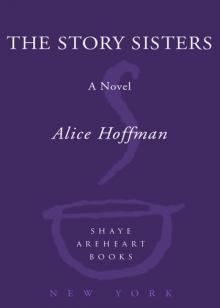 The Story Sisters
The Story Sisters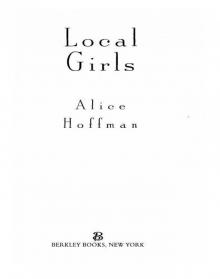 Local Girls
Local Girls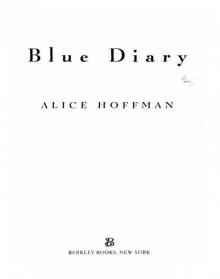 Blue Diary
Blue Diary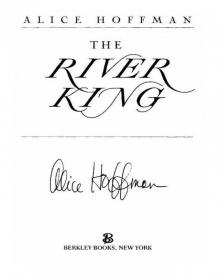 The River King
The River King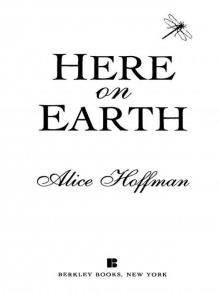 Here on Earth
Here on Earth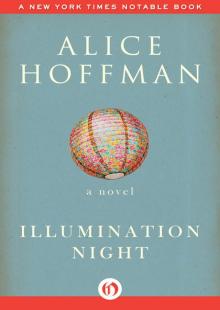 Illumination Night: A Novel
Illumination Night: A Novel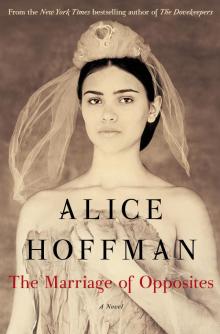 The Marriage of Opposites
The Marriage of Opposites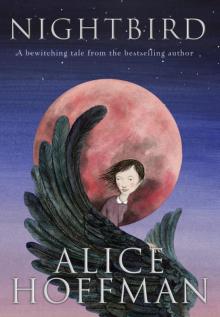 Nightbird
Nightbird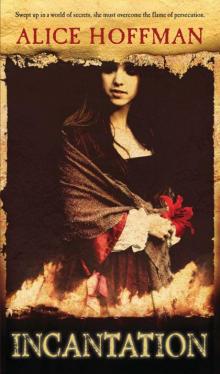 Incantation
Incantation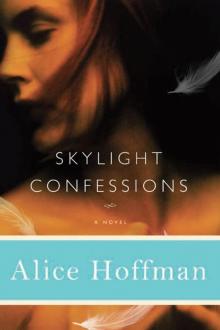 Skylight Confessions
Skylight Confessions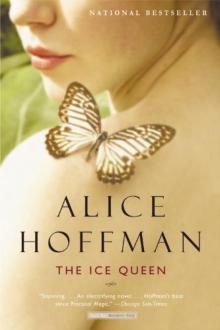 The Ice Queen
The Ice Queen Second Nature
Second Nature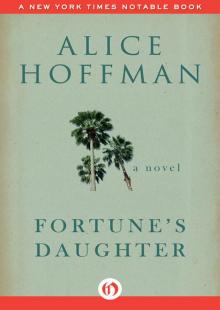 Fortune's Daughter: A Novel
Fortune's Daughter: A Novel Seventh Heaven
Seventh Heaven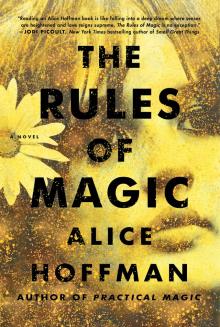 The Rules of Magic
The Rules of Magic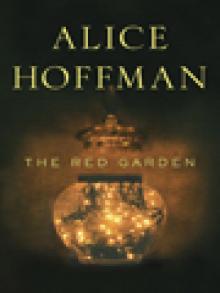 The Red Garden
The Red Garden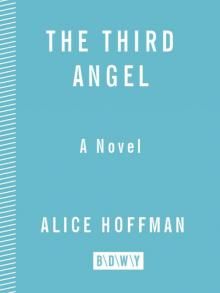 The Third Angel
The Third Angel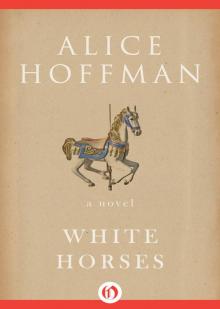 White Horses
White Horses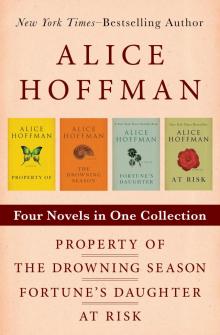 Property of / the Drowning Season / Fortune's Daughter / at Risk
Property of / the Drowning Season / Fortune's Daughter / at Risk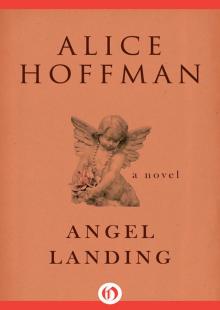 Angel Landing
Angel Landing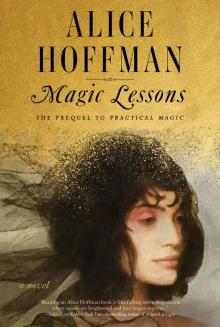 Magic Lessons
Magic Lessons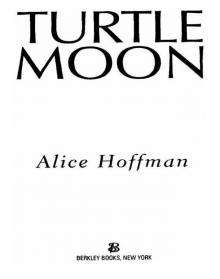 Turtle Moon
Turtle Moon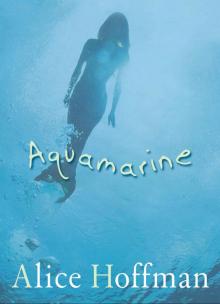 Aquamarine
Aquamarine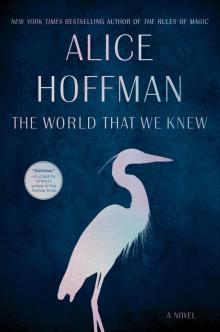 The World That We Knew
The World That We Knew Faithful
Faithful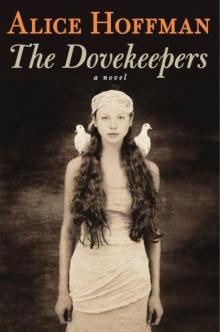 The Dovekeepers
The Dovekeepers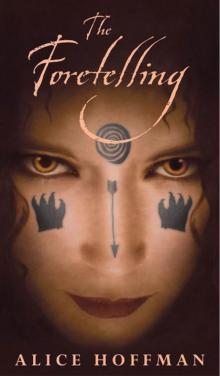 The Foretelling
The Foretelling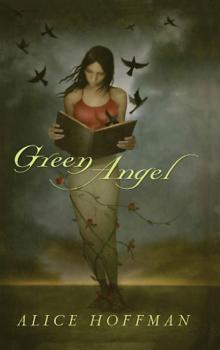 Green Angel
Green Angel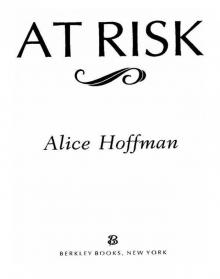 At Risk
At Risk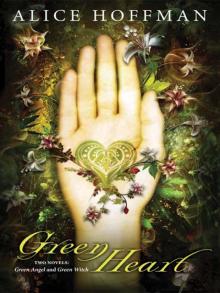 Green Heart
Green Heart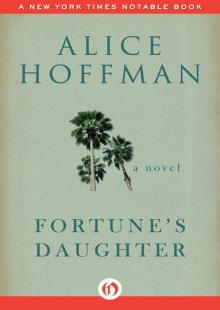 Fortune's Daughter
Fortune's Daughter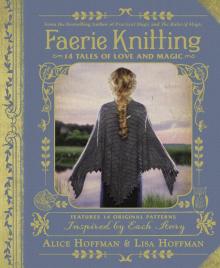 Faerie Knitting
Faerie Knitting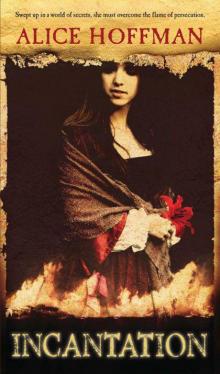 Incantation (v5)
Incantation (v5)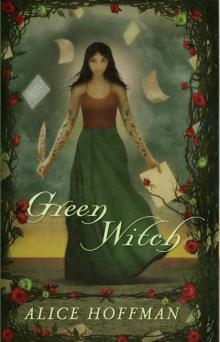 Green Witch
Green Witch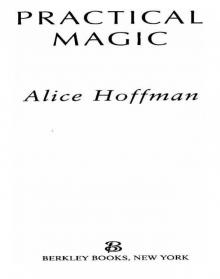 Practical Magic
Practical Magic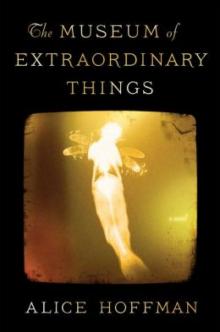 The Museum of Extraordinary Things
The Museum of Extraordinary Things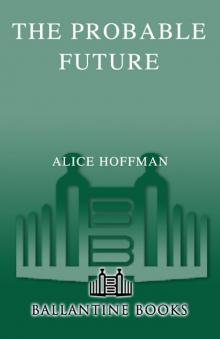 The Probable Future
The Probable Future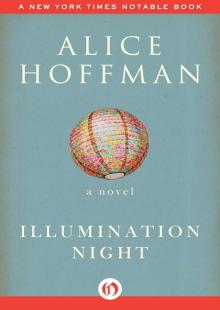 Illumination Night
Illumination Night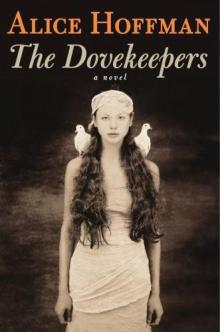 The Dovekeepers: A Novel
The Dovekeepers: A Novel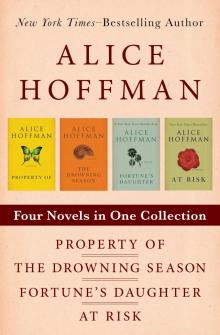 Property Of, the Drowning Season, Fortune's Daughter, and At Risk
Property Of, the Drowning Season, Fortune's Daughter, and At Risk